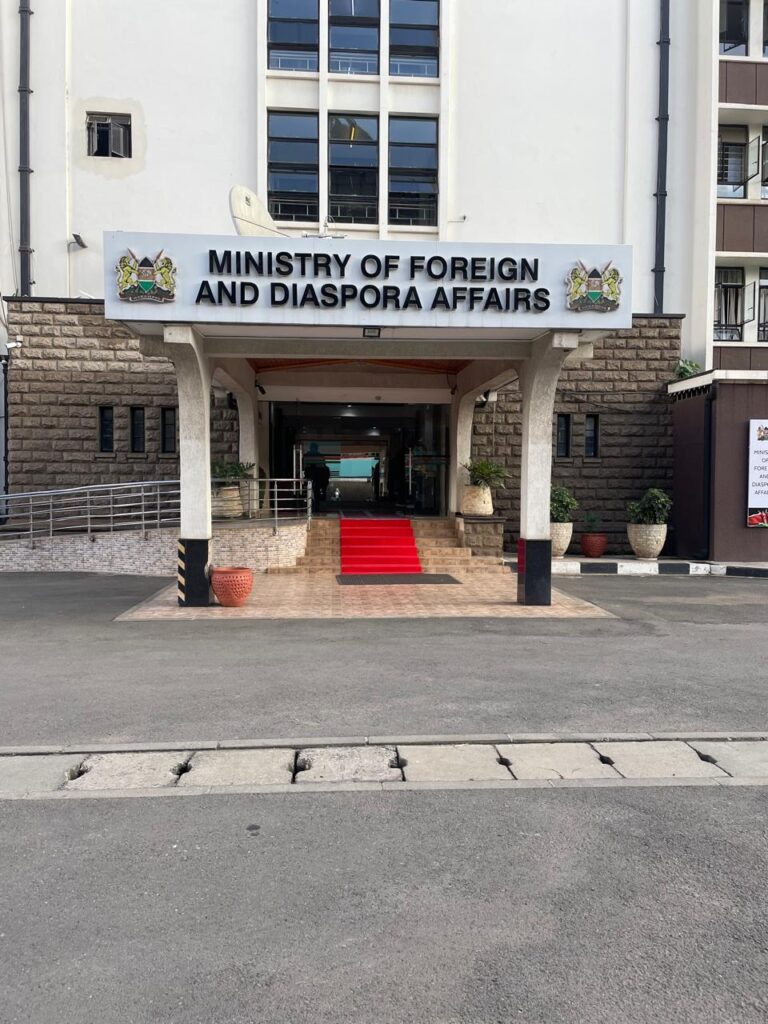Highlight 45/2025: The role of foreign ministries in furthering higher education among civil servants: the case of Kenya and European partnerships
Arnold Ateka, 19 November 2025

Foreign ministries play a pivotal role in advancing higher education opportunities for civil servants, directly aiding the attainment of SDG 4 (Quality Education). The Ministry of Foreign and Diaspora Affairs (MFA) of Kenya, in strategic collaboration with European universities, exemplifies how bilateral partnerships contribute to academic mobility, professional skills, and policy innovation.
Kenya’s MFA, via the Foreign Service Academy (FSA), implements comprehensive training programmes and fosters institutional linkages for continuous professional development. The transformation of FSA into a Semi-Autonomous Government Agency has empowered it to initiate flexible collaborations and independently transact with foreign partners.
EU institutions and programs like Erasmus+ and VLIR-UOS actively support Kenyan civil servants and students through scholarships and academic mobility. In 2025, 34 Kenyan students commenced Erasmus+ programmes in Europe, enhancing skills and joint research. Events such as the Study in Europe Fairs catalyze knowledge exchanges and postgraduate study pathways.
These partnerships have led to measurable improvements in civil service skills and more so in the integration of Education for Sustainable Development (ESD) principles in the national policy of developing countries and ensures bilateral and multilateral initiatives reinforce curriculum reforms and knowledge transfers within the SDG 4 framework.
SDGs should cooperate with expanded data-driven evaluations for better targeting and impact measurement. This means tracking outcomes such as the number of civil servants trained, graduation rates, skills application in public service, and alignment with SDG 4 targets. Reliable data helps identify which programmes yield the greatest development impact and where resources should be prioritized or adjusted. It also promotes accountability to stakeholders and donors.
An increase in institutional support with transparent declaration of outcomes might strengthen institutional frameworks within foreign ministries and partner universities hence ensuring a sustainable programme administration. Transparent documentation and sharing of outcomes—through reports, case studies, and impact assessments anchored by clear citations—builds trust and validate the initiative’s benefits. Such openness improves program design, mobilizes additional funding, and encourages replication or scaling of successful interventions.
A broader cross-sectoral alliance encompassing government, academia, and civil society creates diverse expertise whereby government provides policy and funding support; civil society offers community insight and advocacy; academia contributes research and training.
In Kenya, well-governed networks among these actors have enhanced innovation, information sharing, and the practical application of knowledge. Facilitating dialogue platforms and joint projects across sectors leads to more integrated, context-responsive, and sustainable educational outcomes. Kenya’s MFA demonstrates how foreign ministries can leverage international partnerships to advance higher education and SDG 4, strengthening civil service competencies and global engagement.
Arnold Ateka, Highlight 45/2025: The role of foreign ministries in furthering higher education among civil servants: the case of Kenya and European partnerships, 19 November 2025, available at www.meig.ch
The views expressed in the MEIG Highlights are personal to the authors and neither reflect the positions of the MEIG Programme nor those of the University of Geneva.
